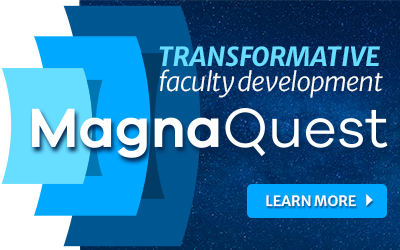Teaching at the collegiate level is a wonderful, complex career. We hire people and expect them to teach effectively, publish frequently, serve as effective committee members, and maybe even serve as successful administrators. How many new hires on your campus arrive fully prepared and competent to fill that job description?
Too often, a college’s expectations are not matched with appropriate training and resources for faculty members, especially during the more formative years. When a faculty member fails to meet expectations or falls short in the rank-advancement process, the time-consuming and costly process of recruitment and hiring must begin again.
Effective mentoring increases the likelihood that faculty members will be successful; therefore, designing and implementing a robust mentoring program must be an essential part of a campus administrator’s job rather than being seen as a distraction.
College and department leaders can benefit from carefully considering several important questions when creating an organized mentoring program: (1) to what degree does my institution value mentoring; (2) what mentoring programs or initiatives currently exist at my institution; (3) what parts of our current program are working; (4) what parts are not working; (5) what can we do to improve our program; (6) what kind of financial and personnel resources are required to make those changes; (7) how do we begin; and (8) how do we continue to improve our mentoring program over time?
There are many ways to organize a successful faculty mentoring program. Since one size rarely fits all, campus leaders must determine the best use of their available resources to meet the needs of their faculty. There are several critical decisions to consider when developing an effective mentoring program. For example, will your program include:
- Formal or informal mentoring opportunities
- Single mentors or a team approach
- Specialists or generalists as mentors
- Mandatory or optional participation
- Incentives
- Short term and/or long term commitments
- Standardized/scripted or flexible program content
Your mentoring program’s level of success will largely be determined by the level of “buy-in” you achieve from administrators, mentors, and mentees. Don’t leave program outcomes to chance or outside influences. Success in your mentoring program should be based on the purposeful efforts of everyone involved. Focus their attention and energy on solvable problems and desired outcomes. Help participants set specific, measurable, attainable, relevant, and timely goals.[1]
A repeatable four-step pattern can be used to foster self-reliance[2] in mentors:
- Don’t just tell them what to do; show them what is expected.
- Give feedback and guidance as needed to help them as they practice new skills.
- Give them sufficient time and resources to work on new skills. Reassure them that you are available, as needed, to watch them to see where additional support or re-training may be needed.
- Give mentors and mentees the freedom they need to perform the tasks without your direct involvement, and let them own it.
Mentors can look for ways to use this same general pattern with their mentees. As mentees assume more ownership and responsibility, their capacity to solve problems and resolve concerns should increase. Mentors should not be expected to be the expert in everything. Provide them with needed training and resources; don’t make them each invent the wheel.
Faculty mentoring programs are only as good as the mentors. Unfortunately, few senior faculty members ever receive formal training regarding how to be an effective mentor. They may be excellent instructors and researchers. They may also be experts on university and departmental culture and policies. Mentoring is usually an acquired skill not an innate ability. Most faculty need direction and training to effectively transmit their proficiencies to the next generation of faculty members.
Successful mentoring programs require focus, vision, clear expectations, open communication, adaptability, frequent monitoring, and ongoing training. The degree to which program participants stay actively engaged will influence your program’s success. Faculty members can work together to create a culture of effective feedback and teamwork. Recognize that program improvement will develop over time through an iterative process.
Several decisions need to be made before implementing a mentoring program. For example:
- What aspects of our mentoring program will be administered at the university, college, or department level?
- Who will manage this program at the department level?
- What resources will mentors and mentees receive?
- What will be expected of mentors and mentees?
- What incentives will be offered to participants?
- How will active participation in your mentoring program positively affect tenure and rank advancement?
- How will you measure your program’s success?
This list is not exhaustive, but is a good starting point. Successful mentoring seldom happens spontaneously. It requires careful planning and ongoing engagement.
The ultimate test of a mentoring program is this: Did it provide the necessary resources and training to help faculty members reach their potential? Departments can have a perfectly organized, well-funded program, with expert mentors, but without active and diligent engagement from new faculty members no mentoring program can succeed.
Even though effective mentoring programs are costly and difficult to establish, inaction costs significantly more and can create time-intensive problems in the future. New faculty members are not a burden or a problem, they are your future. The real value of new faculty is not what we can get out of them, but what we can invest in them.
References
[1] Doran, G. T., “There’s a S.M.A.R.T. way to write management’s goals and objectives,” Management Review. Vol. 70, no. 11 (1981): 35–36.
[2] M. David Merrill, “First Principles of Instruction,” Educational Technology Research and Development, Vol. 50, No. 3 (2002), 43–59.
Dr. Ken Alford and Dr. Tyler Griffin will explore these and other related topics during their upcoming Magna Online Seminar “Creating & Maintaining a Robust Faculty Mentoring Program” on January 18, 2018 at 3:00 p.m. (Eastern Standard Time).



